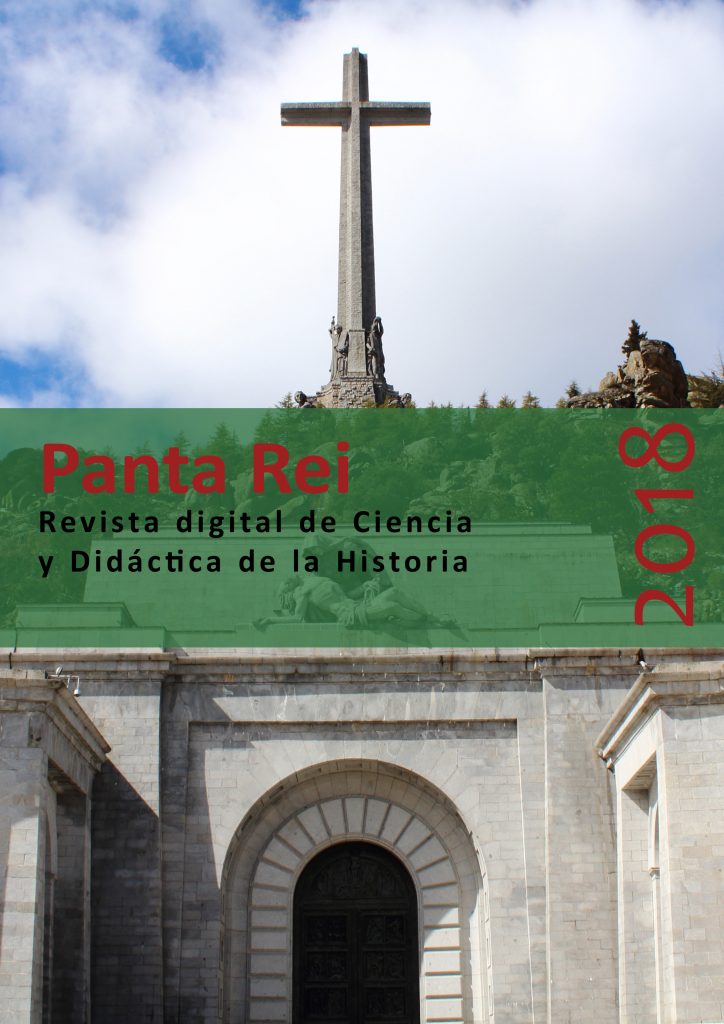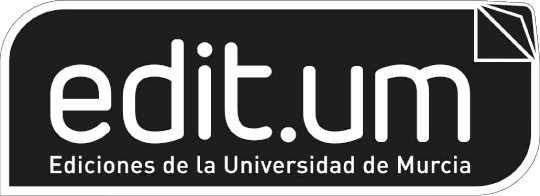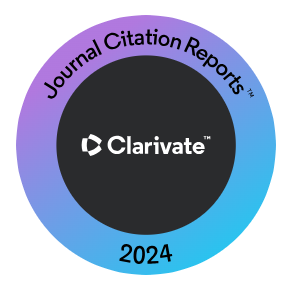The Narrative Framing of Violence in Teaching Resources about the Spanish Conquest of America
Supporting Agencies
- This project was funded by the European Union/Marie Curie Grant (FP7-PEOPLE-CIG) from 2012 to 2016, and the Spencer Foundation Research Grant from 2013 to 2014
Abstract
The conquest of America (1492-1550) is a deeply contested topic that still generates controversy due to the violence it entailed and the magnitude of its consequences. This study analyzes how different narratives about the Spanish Conquest of America present in history education resources used in Spain and Colombia represent the violence intrinsic to this event. Data was analyzed through narrative and discursive theory. Four main narratives were identified: a Narrative of Encounter, a Narrative of Modernity, a Narrative of Domination, and a Narrative of Devastation.
Downloads
-
Abstract950
-
PDF294
References
Ahonen, S. (1997). A transformation of history: The official representations of history in East Germany and Estonia, 1986-1991. Culture & Psychology, 3(1), 41-62.
Anderson, C. B. (2012). Misplaced multiculturalism: Representations of American Indians in U.S. history academic content standards. Curriculum Inquiry, 42(4), 497-509. Retrieved from https://onlinelibrary.wiley.com/doi/abs/10.1111/j.1467-873X.2012.00604.x
Anderson, C. B., & Metzger, S. A. (2011). Slavery, the civil war era, and African American representation in U.S. history: An analysis of four states’ academic standards. Theory and Research in Social Education, 39(3), 393-415.
Andrews, M. (2007) Shaping history: Narratives of political change. Cambridge: Cambridge University Press.
Andrews, M. (2014). Narrative imagination and everyday life. Oxford: Oxford University Press. Aram, B. (2008). Leyenda negra y leyenda doradas en la conquista de américa: Pedrarias y Balboa. Madrid: Marcial Pons.
Arendt, H. (1970). On violence. New York: Harcourt, Brace & World, Inc.
Barash, D., & Webel, C. (2002). Peace and conflict studies. Thousand Oaks, CA: Sage.
Bar-Tal, D. (2000). Shared Beliefs in a Society: Social Psychological Analysis. Thousands Oaks, CA: Sage Publications.
Barton, K. C., & McCully, A. W. (2005). History, identity, and the school curriculum in Northern Ireland: An empirical study of secondary students’ ideas and perspectives. Journal of Curriculum Studies, 37(1), 85-116.
Barton, K. C., & McCully, A. W. (2007). Teaching controversial issues… Where controversial issues really matter. Teaching History, 127, 13-19.
Bekerman, Z., & Zembylas, M. (2012). Teaching Contested Narratives: Identity, Memory and Reconciliation in Peace Education and Beyond. Cambridge: Cambridge University Press.
Bermúdez, A. (2012). The Discursive Negotiation of Cultural Narratives and Social Identities in Learning History. In M. Carretero, M. Asensio, & M. Rodríguez-Moneo (Eds.), History Teaching and National Identities. International Review of History Education, Vol. 5. Charlotte, CT: Information Age Publishing.
Bernstein, R. J. (2015). Violencia: pensar sin barandillas. Barcelona: Editorial Gedisa.
Billig, M. (1987). Arguing and Thinking: A Rhetorical Approach to Social Psychology. Cambridge: University Press.
BOE (2015). Boletín Oficial del Estado (España), n.º 3. 3-01-2015.
BOE (1987). Boletín Oficial del Estado (España), n.º 241. 8-12-1987.
Braslavsky, C. (1991). Los libros de texto en su contexto: Argentina 1975-1989. In M. Riekenberg (Ed.), Latinoamérica: Enseñanza de la historia, libros de texto y conciencia histórica (pp. 60- 76). Buenos Aires/Madrid: FLACSO/Georg Eckert Institut.
Bruner, J. (1986). Actual minds, possible worlds. Cambridge, MA: Harvard University Press. Bruner, J. (1991). The Narrative Construction of Reality. Critical Inquiry, 18(1), 1-21.
Carretero, M. (2011). Constructing Patriotism: Teaching History and Memories in Global Worlds. Charlotte, NC: IAP.
Carretero, M., & Bermúdez, A. (2012). Constructing Histories. In J. Valsiner (Ed.), Handbook of Sociocultural Research (pp. 625-646). Oxford: Oxford University Press.
Carretero, M., & Kriger, M. (2011). Historical Representations and Conflicts about Indigenous People as National Identities. Culture & Psychology, 17(2), 177-195.
Carretero, M., Jacott, L., & López-Manjón, A. (2002). Learning History through Textbooks: Are Mexican and Spanish Students Taught the Same Story? Learning and Instruction, 12(6), 651- 665.
Clark, A. (2007). Representations of Aboriginal People in English Canadian History Textbooks: Toward Reconciliation. In E. Cole (Ed.), Teaching the Violent Past (pp. 123-153). Lanham, MD: Rowman & Littlefield Publishers.
Cole, E. (ed). (2007). Teaching the Violent Past: History Education and Reconciliation. Lanham, MD: Rowman & Littlefield Publishers.
Colmenares, G. (1990). Historia Económica y Órdenes de Magnitud. Capítulo 1: La Formación De La Economía Colonial (1500-1740). Manuscript.
Colmenares, G. (1991). La Batalla de los Manuales en Colombia. In M. Riekenberg (Ed.), Latinoamérica: Enseñanza e la historia, libros de texto y conciencia histórica (pp. 122-134). Buenos Aires/Madrid: FLACSO/Georg Eckert Institut.
Dieterich Steffan, H. D. (Ed.). (1991) 1492-1992 La interminable Conquista. Emancipación e identidad de América Latina. Bogotá: Editorial El Búho.
Dri, R. (1991). Teología de la Dominación y la Conquista. In H. Dieterich Steffan (Ed.), 1492-1992 La interminable Conquista (99-128). Bogotá: Editorial El Buho.
Dussel, E. (1983). Historia General de la Iglesia en América Latina. Salamanca: Ediciones Sígueme. Dussel, E. (1991). 1492: Diversas posiciones ideológicas. In H. Dieterich Steffan (Ed.), 1492-1992. La interminable Conquista (pp. 77-97). Bogotá: Editorial El Buho.
El presidente de RTVE sobre la conquista de América: “España no fue colonizadora, sino evangelizadora” (2017, Abril 4). Eldiario.es. Retrieved from: https://www.eldiario.es/rastreador/ RTVE-Espana-America-colonizadora-evangelizadora_6_629647047.html
Epstein, T. (2009). Interpreting National History: Race, Identity, and Pedagogy in Classrooms and Communities. New York: Routledge.
Ferro, M. (2003). The use and Abuse of History: Or how the Past is Taught to Children. London: Routledge (1st Ed. 1984).
Galtung, J. (1996). Peace by peaceful means. London, New Delhi, Thousand Oaks: Sage.
Garrett, H. J. (2011). The routing and re-routing of difficult knowledge: Social studies teachers encounter when the levees broke. Theory and Research in Social Education, 39(3), 320-347.
Gee, J. P. (2011). An Introduction to Discourse Analysis 4th Edition: Theory and Method. New York: Routledge.
Halperín Donghi, T. (1992). Backward Looks and Forward Glimpses from a Quincentennial Vantage Point. Journal of Latin American Studies, 24(S1), 219-234.
Harré, R., & Moghaddam, F. M. (2003). The self and others: Positioning individuals and groups in personal, political, and cultural contexts. Westport, CT: Praeger.
Haste, H., & Abrahams, S. (2008). Morality, culture and the dialogic self: Taking cultural pluralism seriously. Journal of Moral Education, 37(3), 357–374.
Haste, H., & Bermúdez, A. (2017). The Power of Story: Narrative, History and Civic Identity. In M. Carretero, S. Berger, & M. Grever (Eds.), International Handbook of Research in Historical Culture and Education. London: Palgrave MacMillan.
Hess, D. (2010). Controversy in the classroom; the democratic power of discussion. New York: Routledge.
Horna, H. (2013). Hacia una visión indianista de la conquista. Pacarina del Sur, 4(14). Retrieved from: http://www.pacarinadelsur.com/home/indoamerica/616-hacia-una-vision-indianista-de- la-conquista?
León-Portilla, M. (1966). ¿Qué es el indigenismo interamericano? América Indígena, XXVI (4), 341-359.
Ley 18/1987 del 7 de Octubre de 1987. BOE, 8-10-1987, n.º 241, p. 30149
Ley 115 del 8 de Febrero de 1994, Por la cual se expide la ley general de educación.
Lynch, J. (1992). The Institutional Framework of Colonial Spanish America. Journal of Latin American Studies, 24(S1), 69-81.
Mann, C. C. (2005). 1491: New Revelations of the Americas Before Columbus. New York: Alfred A. Knopf.
Maxwell, J. (2013). Qualitative Research Design: An Interactive Approach. 3rd Ed. Vol. 41 Okland, CA: Sage.
May, S., & Sleeter, C. E. (Eds.) (2010). Critical multiculturalism: Theory and praxis. New York: Routledge.
McCully, A. (2018). Teaching history and educating for citizenship: Allies or “uneasy bedfellows” in a post conflict context? In T. Epstein, & C. Peck (Eds.), Teaching and learning difficult histories in international contexts. A critical sociocultural approach (pp. 160-174). New York: Routledge.
Miles, M. B., & Huberman, A. M. (1994). Qualitative data analysis: An expanded sourcebook. Newbury Park, CA: Sage.
Ministerio de Educación Nacional (2004). Estándares básicos de competencias en ciencias sociales.
Formar en ciencias: ¡el desafío! Lo que necesitamos saber y saber hacer. Colombia: MEN. O’Gorman, E. (1958). La invención de América. Mexico: Fondo de Cultura Económica.
Oglesby, E. (2007). Historical Memory and the Limits of Peace Education: Examining Guatemala’s Memory of Silence and the Politics of Curriculum Design. In E. Cole (Ed.), Teaching the Violent Past: History Education and Reconciliation. Lanham, MD: Rowman & Littlefield Publishers.
Páramo, G. (1992). El encuentro. In L. B. Peña & R. Jaramillo (Eds.), Un mundo jamás imaginado 1492-1992 (pp. 159-171). Bogotá: Santillana.
Raviv, A., Oppenheimer, L., & Bar-Tal, D. (1999). How Children Understand War and Peace: A Call for International Peace Education. San Francisco: Jossey-Bass Publications.
Ricoeur, P. (1983). Time and Narrative. Chicago: University of Chicago Press.
Ricoeur, P. (2004). Memory, History, Forgetting. Chicago: University of Chicago Press..
Rüsen, J. (2004). Historical Consciousness: narrative structure, moral function, and ontogenetic development. In P. Seixas (Ed.) Theorizing historical consciousness (pp. 63-85). Toronto: University of Toronto Press.
Saldana, J. (2012). The Coding Manual for Qualitative Researchers. Los Angeles, CA: SAGE. Salomon, G. (2004). A Narrative-based View of Coexistence Education. Journal of Social Issues, 60(2), 273-287.
Sánchez Ferlosio, R. (1991). Esas Yndias equivocadas y malditas. In Chomsky, et al. El nuevo orden mundial o la conquista interminable (pp. 111-138). Navarra: Txalparta.
Sánchez, R., Arias, L., & Egea, A. (2016). The perduration of master narratives: The discovery, conquest and colonization of America in the Spanish history textbooks. International Journal of Historical Learning, Teaching and Research, 13(2), 127-137.
Savenije, G., Van Boxtel, C., & Grever, M. (2014). Learning About Sensitive History: “Heritage” of Slavery as a Resource. Theory & Research in Social Education, 42(4), 516-547.
Seixas, P. (Ed.) (2006). Theorizing historical consciousness. Toronto: University of Toronto Press. Sempat Assadourian, C. (1992). The Colonial Economy: The Transfer of the European System of Production to New Spain and Peru. Journal of Latin American Studies, 24(S1), 55-68.
Shaheed, F. (2013). Cultural rights - writing and teaching history. Report of the Special Rapporteur in the Field of Cultural Rights. United Nations. Human Rights Council.
Shear, S. B., Knowles, R. T., Soden, J. G., & Castro, A. J. (2015). Manifesting Destiny: Re/ presentations of Indigenous peoples in K–12 U.S. history standards. Theory and Research in Social Education, 43(1), 68-101.
Sheppard, M., Katz, D. & Grosland, T. (2015). Conceptualizing emotions in social studies education. Theory & Research in Social Education, 43(2), 147-178.
Stern, S. (1992). Paradigms of Conquest: History, Historiography and Politics-The Quandary of 1492. Journal of Latin American Studies, 24(S1), 1-34.
The Pope’s speech at the meeting with popular movements in Bolivia. (2015, July 9). Aciprensa. Retrieved from https://www.aciprensa.com/noticias/texto-discurso-del-papa-el-encuentro-con- los-movimientos-populares-en-bolivia-80606.
Todorov, T. (1982). La conquete de l’amerique, la question de l’autre. Paris: Editions du Seuil. Todorov, T. (1984). The Morality of Conquest. Diógenes, 32(125), 89-102.
Tulviste, P., & Wertsch, J. V. (1994). Official and unofficial histories: The case of Estonia. Journal of Narrative and Life History, 4(4), 311-329.
Valls, R. (2013). Iberoamérica en la Enseñanza Española de la Historia. Práxis Educativa (Brasil), 8(2), 351-374.
Von Borries, B. (1991). Entre La Pretensión Histórico-Universalista y la Práctica Etnocentrista. Latinoamérica en los Textos De Historia De La República Federal De Alemania. In M. Riekenberg (Ed.), Latinoamérica: Enseñanza De La Historia, Libros De Texto y Conciencia Histórica (pp. 194-211). Buenos Aires/Madrid: FLACSO/Georg Eckert Institut.
Vygotsky, L. S. (1978). Mind in society: The development of higher psychological processes. Cambridge: Harvard University Press.
Wertsch, J. V. (1997). Narrative tools of history and identity. Culture & Psychology, 3(1), 5-20. Wertsch, J. V. (2002). Voices of Collective Remembering. Cambridge: Cambridge University Press. Wertsch, J. V. (2004). Specific narratives and schematic narrative templates. In P. Seixas (Ed.). Theorizing historical consciousness (pp. 49–62). Toronto, ON: University of Toronto Press.
Zembylas, M. (2014). Theorizing “Difficult Knowledge” in the Aftermath of the “Affective Turn”: Implications for Curriculum and Pedagogy in Handling Traumatic Representations. Curriculum Inquiry, 44(3), 390-412.
History Education Resources
(CO-MELO-1992) Melo, J. O. (1992). La Conquista de la Nueva Granada 1- Las Primeras Expediciones a la Costa Atlántica. In L. B. Peña, & R. Jaramillo (Eds.). Un Mundo Jamás Imaginado 1492-1992 (pp. 159-171). Bogotá: Santillana.
(CO-NORMA-1987) Norma (1987). Historia de Colombia: Introducción a la Historia Social y Económica. Bogotá: Norma.
(CO-NORMA-2011) Norma (2011). Sociales para Pensar 7. Bogotá: Norma.
(CO-SANTI-2013) Santillana (2013). Los Caminos del Saber. Sociales 7. Ciencias Sociales. Bogotá: Santillana.
(CO-VEGA-1988) Vega, R., Castro, L. M., Nájera, I. & Rodríguez, C. I. (1988). 12 De Octubre de 1492. ¿Descubrimiento o Invasión? Bogotá: Campaña de Autodescubrimiento de Nuestra América.
(CO-GALEA-1971) Galeano, E. (1971). Las Venas Abiertas de América Latina. México: Siglo XXI. . (SP-IBAIZ-2009) Ibaizabal (2009). Ciencias Sociales, Geografía E Historia 2 ESO. Proyecto i.By2. España: Ibaizabal.
(SP-KAIROS-2003) Octaedro (2003). Ciencias Sociales, Geografía E Historia, 2 ESO. Proyecto Kairós. España: Octaedro.
(SP-SANTI-2012) Santillana. (2012). Geografía E Historia 2 ESO. Proyecto Los Caminos del Saber. Vol 2. España: Santillana.
Copyright (c) 2018 Ángela Bermúdez Vélez, Diego Argumero Martínez

This work is licensed under a Creative Commons Attribution-ShareAlike 4.0 International License.
All the contents published in this journal are subject to an Attribution-ShareAlike 4.0 International (CC BY-SA 4.0) Creative Commons License. You are free to: Share — copy and redistribute the material in any medium or format, Adapt — remix, transform, and build upon the material, for any purpose, even commercially. Under the following terms:
Attribution — You must give appropriate credit, provide a link to the license, and indicate if changes were made. You may do so in any reasonable manner, but not in any way that suggests the licensor endorses you or your use.
ShareAlike — If you remix, transform, or build upon the material, you must distribute your contributions under the same license as the original.
Full text of the license is available in: Creative Commons License 











